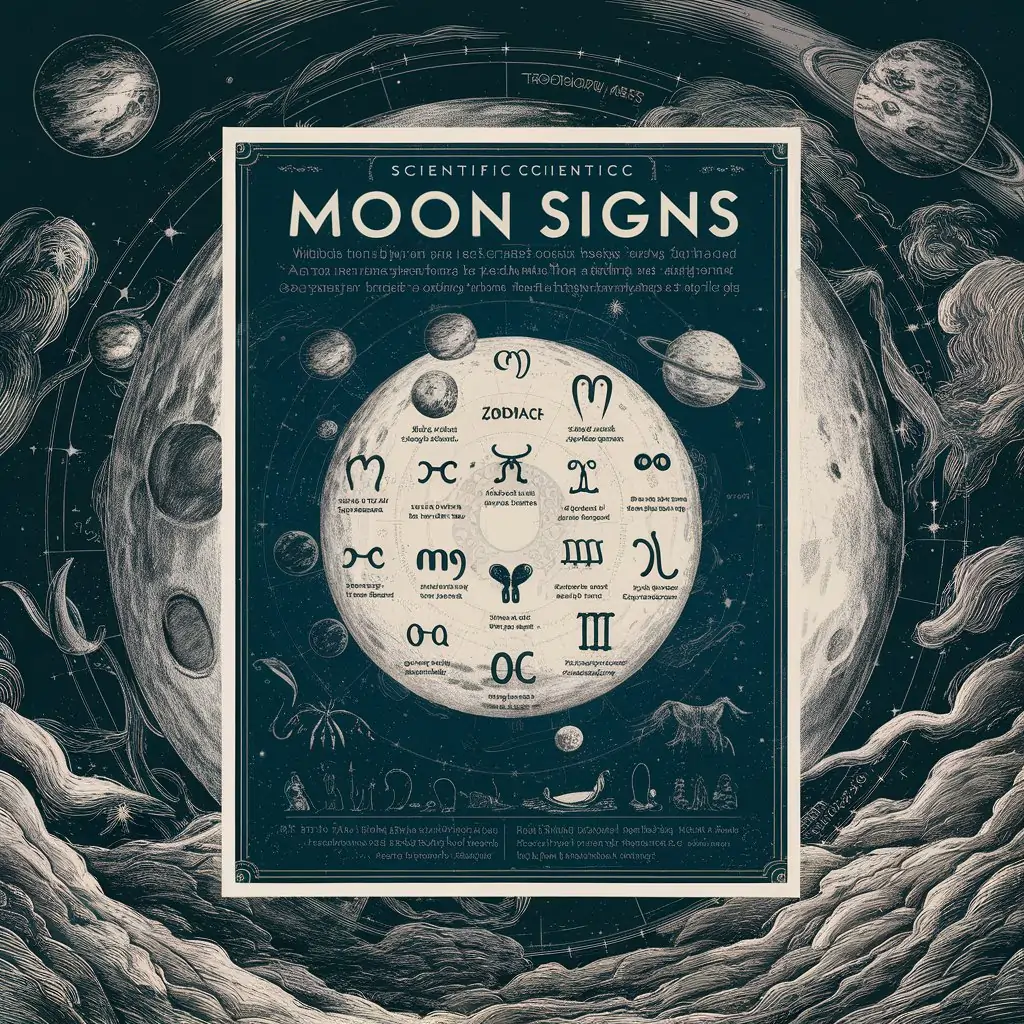The Science Behind Moon Signs: Fact or Fiction?
Astrology often blends mystery with skepticism, especially when it comes to Moon signs. These astrological elements are thought to influence human emotions and behaviors, but many claims lack scientific support.
In this article, I’ll try to explain Moon signs, their astrological significance, the psychological impacts of lunar phases, and the scientific scrutiny they face.
The Astrological Elements and Moon Signs
In astrology, the Moon sign is believed to control a person’s emotions and subconscious tendencies, influencing how they react to the world. Each Moon sign has specific traits and is determined by the zodiac sign the Moon was in at the time of a person’s birth.
For example, someone with a Moon in Scorpio might be very emotional and secretive, while a Moon in Sagittarius could mean they are adventurous and free-spirited.
Astrologers use Moon signs, along with Sun signs and rising signs, determined through tools like a moon sign calculator, to create detailed personal profiles that supposedly predict individual tendencies and compatibility with others.
The zodiac is divided into 12 signs, each linked to one of four classical elements: fire, Earth, air, and water. These elements are thought to add more details to a person’s personality based on their Moon sign.
Lunar Phases and Their Psychological Influence
Beyond astrology, the physical phases of the Moon—from new to full—are believed to affect human behavior.
Folklore and anecdotal evidence often suggest that the full Moon is a time of heightened emotional sensitivity and erratic behavior. Some studies have investigated these claims, looking for statistical connections between lunar phases and human psychological states.
While a few small studies have hinted at links between the full Moon and increased admissions to psychiatric hospitals or more aggressive behavior, larger and more comprehensive research does not widely support these correlations.
Most scientists agree that any observed effects are likely coincidental or the result of confirmation bias, not a direct influence of the Moon on human behavior.
Scientific Perspectives on Moon Signs
Scientifically, the concept of Moon signs and their influence on personality lacks empirical evidence. Unlike astronomy, which is based on observable phenomena and experimental data, astrology is a belief system rooted in symbolism and tradition.
Most scientists dismiss astrology as pseudoscience because it does not follow scientific methods, lacks predictive power, and often relies on vague statements that can apply to many people.
The Intersection of Astrology and Science
While astrology and science typically operate in separate realms, there are some areas where they overlap. For example, the study of astronomy began with ancient astrological pursuits.
Today, some psychologists and cultural researchers study astrological beliefs to understand human behavior and cultural phenomena. They do this not to validate astrology but to explore why people find meaning and comfort in these ancient systems.
This intersection does not give scientific credibility to astrology but highlights the importance of understanding how belief systems persist and evolve and how they affect human behavior and society.
Myths and Misconceptions About Moon Signs
Many myths and misconceptions about Moon signs and astrology persist in popular culture. A common misconception is that astrology can predict specific events or outcomes in a person’s life with certainty.
In reality, astrology offers interpretations based on symbolic meanings and traditional lore, which are subjective and non-specific.
Another myth is that the Moon and other celestial bodies have scientifically proven effects on human behavior, as astrology claims.
While the Moon’s gravitational forces affect the Earth, especially the tides, there is no scientific evidence that these forces directly impact individual human behavior in the way astrology suggests.
Conclusion
Exploring Moon signs from both astrological and scientific perspectives reveals a complex interplay between belief and skepticism. While astrological practices have rich cultural and historical significance, scientific scrutiny highlights the lack of empirical support for astrological claims.
Understanding this dynamic helps bridge the gap between belief and scientific validation, fostering greater appreciation for the psychological and cultural reasons why astrology continues to be popular in the modern world.
Disclaimer: This article is intended for informational and educational purposes only and explores the concept of Moon signs within astrology alongside their evaluation under scientific scrutiny. The astrological views and interpretations mentioned are not supported by empirical scientific evidence and should be understood as part of a belief system rather than factual information. Readers are encouraged to critically evaluate these ideas and consider scientific consensus when exploring astrological claims. This content is not intended to replace professional advice from qualified scientists or psychologists.






